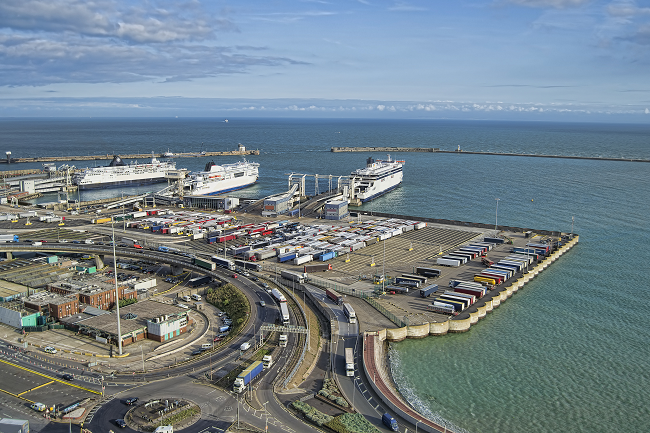
The head of the Port of Dover has said his team has done “everything we can” ahead of the upcoming bank holiday and half-term break to prevent a repeat of the 15-hour delays from Easter.
Up to 5,500 cars and 350 coaches are expected at the port on Friday (26 May) ahead of the bank holiday, but CEO Doug Bannister said the port has since taken steps to stop traffic getting snarled up and keep traffic moving.
“We created a new processing centre in the western part of the port to better sequence the traffic coming into the port and to the advanced passenger information checks,” he said.
Traffic control measures have been put in place to manage the flow of lorries on the M20, reports the BBC.
Passenger processing
The port’s border checks are staffed by France’s Police aux Frontières and coach passengers need to disembark the coach to be processed, according to Travel Weekly.
Bannister said the port had worked with the French to try and ensure appropriate resourcing was in place but said “it would be foolish” to claim there would never be queues.
Border strikes
Armed forces are being prepared to cover for striking British Border Force guards at ports and airports, the Guardian has revealed.
The Public and Commercial Services Union (PCS) and Immigration Service Union (ISU), which both represent Border Force workers, are considering further strike action over the summer months.
More than 600 soldiers, RAF staff and Royal Navy staff were deployed during strikes over the Christmas period.
Fruits of Brexit
Delays at the border are being blamed for a halving in exports of British fruit to the EU, as well as impacting other sectors such as dairy and flowers.
Data from HMRC shows that in the year to 31 March 2021, the UK sold £248.5m worth of fruit to the EU, which dropped to £119m the next year, and was £113.8m for the year to March 2023.
“Long delays at UK ports are dissuading many fruit farmers from sending their produce abroad,” Rebecca Copping, a partner at accountants Hazelwoods, told the Guardian.
The decline has been put down to new trade barriers, including mandatory health certificates on fresh and chilled food, as well as customs paperwork for all exports.
‘Cheese blockade’
Similar measures are due to be phased in on EU imports from October, raising concerns about the threat to future imports of fresh cheese, olive oil and dried meats from Spain and Italy.
Shane Brennan, CEO of the Cold Chain Federation, warned that EU-based cheese and meat suppliers won’t be able to fulfil Christmas orders, reports the Daily Mail.
“It’s going to come as a massive shock to the system, and there will be paralysis as a result while everything has to reset,” he said.
Chelsea flowers
Ahead of the Chelsea Flower Festival, British gardeners will see higher costs due to new post-Brexit border checks, the Horticultural Trades Association (HTA) has told the FT.
Plants have been subject to biosecurity controls since January 2021, but from January 2024 checks on some plant goods, such as cut flowers, will have to be conducted at official border control posts before clearing customs, leading to an additional £42m a year in costs.
The HTA has called on the government to delay introducing new checks for a year after the final border plan is published.



